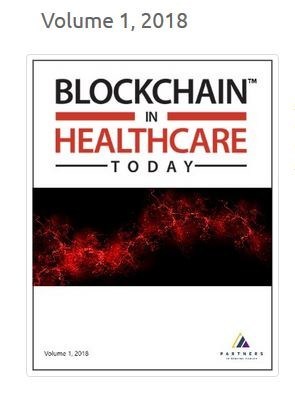 Boston Physician Atul Gawande wrote The Checklist Manifesto in 2009 stressing that medicine should adopt “pilot’s checklists” to ensure that operating room teams are “ready for takeoff” before a scapel is ever opened. BIDMC implemented The Checklist Manifesto ideas in software in 2010. Here’s the “Time Out” done among all OR team members before a case beings - it includes a list of staff participating in the timeout, the agreed upon procedure, the verification of consent, appropriately marked operative site, patient identity verification, and best practices for prophylaxis...
Boston Physician Atul Gawande wrote The Checklist Manifesto in 2009 stressing that medicine should adopt “pilot’s checklists” to ensure that operating room teams are “ready for takeoff” before a scapel is ever opened. BIDMC implemented The Checklist Manifesto ideas in software in 2010. Here’s the “Time Out” done among all OR team members before a case beings - it includes a list of staff participating in the timeout, the agreed upon procedure, the verification of consent, appropriately marked operative site, patient identity verification, and best practices for prophylaxis...
John Halamka
See the following -
OSEHRA 2012 Open Source EHR Summit Opens to Capacity Audience - Live Blog
 The 1st Annual Open Source EHR Summit & Workshop opened to a capacity audience of nearly 400 participants today at the Gaylord National Conference center at National Harbor in Maryland today This is the conference held by Open Source Electronic Health Records Agent (OSEHRA) organization, the custodial agent of the code for the U.S Department of Veteran's Affairs' (VA) open source VistA EHR. The conference has a packed agenda with more that 30 speakers. We will be blogging live from the conference with a few bits and pieces and will follow up with a more extensive set of articles later on.
The 1st Annual Open Source EHR Summit & Workshop opened to a capacity audience of nearly 400 participants today at the Gaylord National Conference center at National Harbor in Maryland today This is the conference held by Open Source Electronic Health Records Agent (OSEHRA) organization, the custodial agent of the code for the U.S Department of Veteran's Affairs' (VA) open source VistA EHR. The conference has a packed agenda with more that 30 speakers. We will be blogging live from the conference with a few bits and pieces and will follow up with a more extensive set of articles later on.
- The Future Is Open
- Login to post comments
An Alternative Proposal for Certification
 Some have suggested that my comments over the past few months about the Meaningful Use program, MACRA/MIPS, and Certification imply that we should just give up - throw out the baby with the bath water. That’s not what I’ve written.
Some have suggested that my comments over the past few months about the Meaningful Use program, MACRA/MIPS, and Certification imply that we should just give up - throw out the baby with the bath water. That’s not what I’ve written.
Here’s a clarification. I believe MACRA/MIPS is the right trajectory - create a set of desirable policy outcomes, then enable clinicians to choose technology, quality measures, and process improvements that are relevant to their practice...
- Login to post comments
An EHR Implementation of The Checklist Manifesto
- Login to post comments
An interoperability update: Do we need more carrots and sticks?
 Earlier this year, the ONC released the Trusted Exchange Framework and Common Agreement (TEFCA), which responds to a mandate included in 2016’s 21st Century Cures Act and lays out principles, terms and conditions on which to base an interoperability framework that healthcare organizations can embrace. “This means patients who have received care from multiple doctors and hospitals should have their medical history electronically accessible on demand by any other treating provider in a network that signed the Common Agreement,” said National Coordinator for Health IT Donald Rucker in a recent blog post. To achieve that goal, TEFCA is divided into parts A, the principles, and B, the terms and conditions, which is also where the rubber meets the road for many who live in the healthcare IT world...
Earlier this year, the ONC released the Trusted Exchange Framework and Common Agreement (TEFCA), which responds to a mandate included in 2016’s 21st Century Cures Act and lays out principles, terms and conditions on which to base an interoperability framework that healthcare organizations can embrace. “This means patients who have received care from multiple doctors and hospitals should have their medical history electronically accessible on demand by any other treating provider in a network that signed the Common Agreement,” said National Coordinator for Health IT Donald Rucker in a recent blog post. To achieve that goal, TEFCA is divided into parts A, the principles, and B, the terms and conditions, which is also where the rubber meets the road for many who live in the healthcare IT world...
- Login to post comments
Are jackalopes and information blocking similar?
 Looking to dupe urbanite travelers, bartenders and bar owners in rural Western taverns sometimes fasten antelope horns to the head of a large jackrabbit. They then mount the whole thing, hang it over the bar and tell visitors looking for a craft brewed IPA to watch for vicious jackalopes when they’re out and about. So, are we having a jackalope moment in health IT? Do we believe in something we can’t see? The suggestion has been made that some vendors are actively engaged in “information blocking”—a basic refusal to exchange patient data with other systems. Either that or they’re charging boatloads of money to do so, which is framed as a form of information blocking in a way, but not exactly.
Looking to dupe urbanite travelers, bartenders and bar owners in rural Western taverns sometimes fasten antelope horns to the head of a large jackrabbit. They then mount the whole thing, hang it over the bar and tell visitors looking for a craft brewed IPA to watch for vicious jackalopes when they’re out and about. So, are we having a jackalope moment in health IT? Do we believe in something we can’t see? The suggestion has been made that some vendors are actively engaged in “information blocking”—a basic refusal to exchange patient data with other systems. Either that or they’re charging boatloads of money to do so, which is framed as a form of information blocking in a way, but not exactly.
As Funding Dries Up, ONC Reorganizes, Consolidates Offices
National Coordinator for Health IT Karen DeSalvo, in an internal memo sent to ONC staffers and emailed to FierceHealthIT late Friday, announced a slew of organizational changes at the agency. The changes also are set to appear in the Federal Register on June 3...
- Login to post comments
athenahealth’s CEO Jonathan Bush to Headline HIMSS16 Views from the Top With Dr. John Halamka
 athenahealth, Inc....today announced that Jonathan Bush, athenahealth CEO, and Dr. John Halamka, Beth Israel Deaconess Medical Center (BIDMC) CIO, will headline a Views from the Top session on the benefits of a future-proof, interoperable network at the 2016 HIMSS Annual Conference and Exhibition (HIMSS16), taking place February 29 - March 4 in Las Vegas. During the session, “How Future-Proof HIT Infrastructure Supports Data Sharing,” Bush and Halamka will observe the interoperability landscape, exploring challenges and benefits of health information exchange, as well as identifying opportunities and imperatives for providers to participate amidst the industry shift to accountable care.
athenahealth, Inc....today announced that Jonathan Bush, athenahealth CEO, and Dr. John Halamka, Beth Israel Deaconess Medical Center (BIDMC) CIO, will headline a Views from the Top session on the benefits of a future-proof, interoperable network at the 2016 HIMSS Annual Conference and Exhibition (HIMSS16), taking place February 29 - March 4 in Las Vegas. During the session, “How Future-Proof HIT Infrastructure Supports Data Sharing,” Bush and Halamka will observe the interoperability landscape, exploring challenges and benefits of health information exchange, as well as identifying opportunities and imperatives for providers to participate amidst the industry shift to accountable care.
- Login to post comments
Blockchain in Healthcare Today Debuts First Ensemble of Articles for Healthcare Industry
 The online peer review journal, Blockchain in Healthcare Today (BHTY), has published its first articles to augment the industry's knowledge-base. The announcement of the journal came last June, when the Founder of Partners in Digital Health, Tory Cenaj, announced the launch of a journal focusing exclusively on blockchain technology for the healthcare marketplace...Blockchain in Healthcare Today is an open-access publication that publishes methodologies, pilots, and scalable and sustainable blockchain deployments, exclusively, in the healthcare ecosystem. The Journal offers rapid, peer-review publication of research, commentary, and proof of concept for blockchain technology and related areas. No subscription fees are paid to view content or to subscribe/register with the journal.
The online peer review journal, Blockchain in Healthcare Today (BHTY), has published its first articles to augment the industry's knowledge-base. The announcement of the journal came last June, when the Founder of Partners in Digital Health, Tory Cenaj, announced the launch of a journal focusing exclusively on blockchain technology for the healthcare marketplace...Blockchain in Healthcare Today is an open-access publication that publishes methodologies, pilots, and scalable and sustainable blockchain deployments, exclusively, in the healthcare ecosystem. The Journal offers rapid, peer-review publication of research, commentary, and proof of concept for blockchain technology and related areas. No subscription fees are paid to view content or to subscribe/register with the journal.
- Login to post comments
Can An Open Source Electronic Health Record Ever Be Ready For Prime-Time?
In October, the Open Source Health Record Agent (OSEHRA) will hold its first summit, bringing together the government and open source developers, two radically different camps united in their goal to improve a lauded electronic health record in need of a face lift—the Veterans Affairs’ VistA. “We believe open source will help us innovate quickly,” says Mike O’Neill who sits on the board of OSEHRA, and is senior advisor to the Director, Veterans Affairs Innovation Initiative.
- Login to post comments
CIO Halamka Highlights 5 Health IT Challenges In Year Ahead
One question that healthcare CIOs are asked time and time again to answer is: What keeps you up at night? Answers to the question vary depending on the type of organization the CIO works for and the complexity of the health IT systems it maintains or is planning to implement. Read More »
- Login to post comments
CIOs Might Be Ready On Time For ICD-10 Deadline Next Year, But Will The Government?
John D. Halamka, chief information officer of Beth Israel Deaconess Medical Center and co-chair of the HIT Standards Committee doesn't think enough healthcare organizations will be ready for ICD-10 implementation on Oct. 1. Read More »
- Login to post comments
Computer Viruses Are "Rampant" On Medical Devices In Hospitals
A meeting of government officials reveals that medical equipment is becoming riddled with malware. Read More »
- Login to post comments
Data Attacks On Healthcare Flying High
In the realm of privacy and security, heeding snooping employees and encrypting portable devices isn't enough in healthcare these days. Criminal attacks on hospitals are on a huge upward trend, with a whopping 100 percent reported increase just from four years ago.
- Login to post comments
Do We Need More or Less Healthcare IT Regulation and Legislation?
 Just as I clarified last week in my post about Certification, the answer to the question “do we need more or less healthcare IT regulation and legislation” is that we need the right amount of the right regulations/legislation. Sometimes when clinicians prescribe medication, although it does therapeutic good, it creates side effects which need to be addressed by changing a dose or by adding additional medications. Such is the case with HITECH. It was generally good medicine, but now that we’ve seen the side effects on workflow, clinician burden, and efficiency, there needs to be a dose adjustment...
Just as I clarified last week in my post about Certification, the answer to the question “do we need more or less healthcare IT regulation and legislation” is that we need the right amount of the right regulations/legislation. Sometimes when clinicians prescribe medication, although it does therapeutic good, it creates side effects which need to be addressed by changing a dose or by adding additional medications. Such is the case with HITECH. It was generally good medicine, but now that we’ve seen the side effects on workflow, clinician burden, and efficiency, there needs to be a dose adjustment...
- Login to post comments
Does Google Glass Have a Place in the Operating Room?
Hospitals are finding innovative ways of adapting the head-mounted computer to healthcare environments. Read More »
- Login to post comments